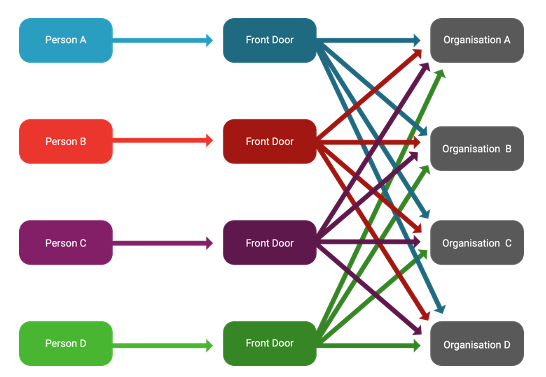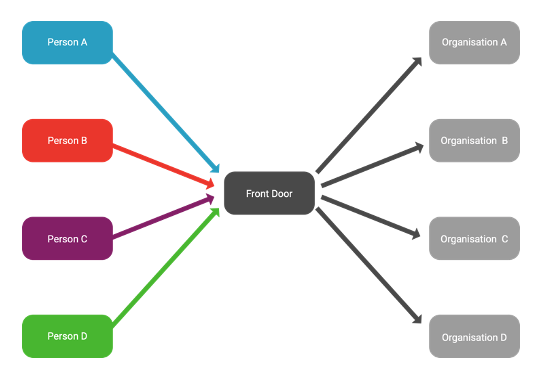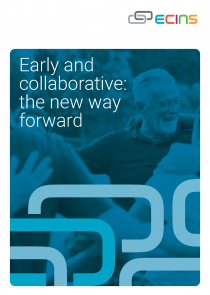Most people understand that providing people with the support they need as soon as possible is key to achieving better outcomes. But what if support agencies are only able to see part of the picture of the risk a person is facing? What if vulnerable people, such as a children, who may not have appropriate caregivers advocating for them, are overlooked?
These were the questions asked by the team at Safe Lives, after Domestic Homicide Reviews (DHRs) found that professionals were not working together to share information effectively. The review found that when case management systems used by different agencies don’t integrate with each other it created a barrier to effective information sharing. This might mean that someone could be assessing the safety of an at-risk child without knowing that the child’s primary carer is at high risk of serious harm or murder.
No wrong door
Originally this problem was attempted to be resolved through a No Wrong Door policy, where people could attend a variety of services e.g. housing support, psychologist, addiction specialist, and even if that service couldn’t solve an additional problem the client was facing, they would be responsible for referring on to an appropriate service i.e. every door gets you where you need to go in the end or No Wrong Door. This model worked to an extent but was time consuming and sometimes confusing.

From No Wrong Door to One Front Door
The latest and less confusing approach is called One Front Door.

What is One Front Door?
The concept of One Front Door is that individuals and families use a single access point to seek help for a wide variety of issues e.g. mental health for adults and children, housing, substance misuse, domestic violence etc. Having one pathway to support, regardless of the risk and complexity of a person or family’s issues, simplifies the process of help-seeking for both public and professionals, creating more transparency across teams and reducing gatekeepers and interventions.
Why was One Front Door developed?
One Front Door started as an integrated whole family response to safeguarding and domestic abuse when it became apparent that support was only being sought for certain issues while others, or the needs of other family members, were falling between the cracks. It has evolved to address other complex social issues such as homelessness, gang violence and anti-social behaviour.
What are the benefits of One Front Door?
- The risks and needs of individuals and more complex family group are taken into account
- Broader, more integrated and more collaborative approach taken by support agencies
- Everyone operating from one system rather than different systems which impede information sharing
- Enquiries and referrals triaged more quickly
- The right support matched to the right person
- Full risk profile understood by all agencies to allow high risk cases to be managed first
- Story told once rather than reliving trauma over and over
- More collaborative problem solving, rather than competition, across teams
The ECINS collaborative case management system, which funnels referrals from multiple sources and diverts them to the most appropriate team while allowing safe sharing of sensitive information is designed to allow the One Front Door system to work. If you would like a demonstration to see how it might work for you, contact us at enquiries@ecins.com.au.


